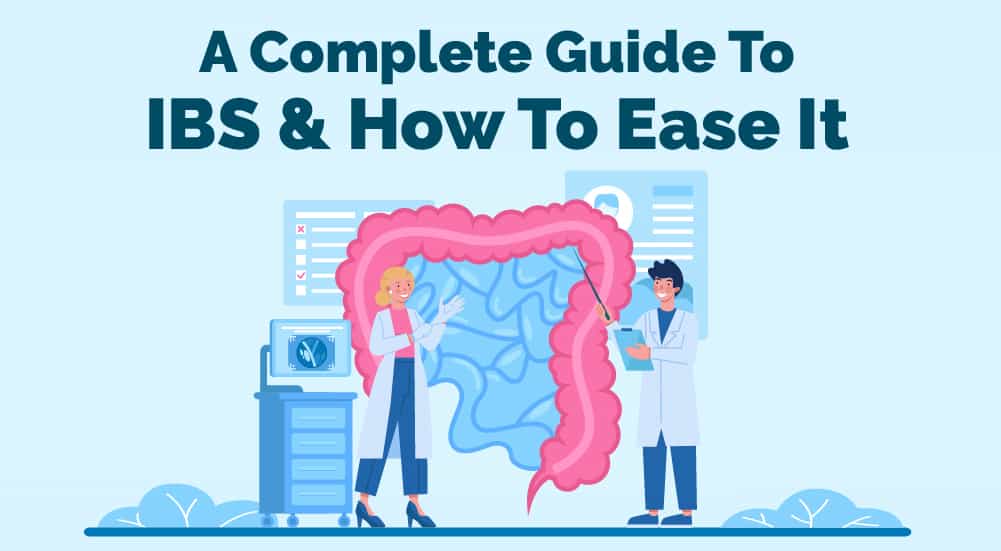
Main Topics
Introduction

Here’s a question for you.
How many people live in the whole of Australia? Men, women, children – every human being. How many do you think?
Around 25.5 million, according to 2021 figures.
How about Canada? Any guesses on our neighbor to the north?
Just under 38 million.
Saudi Arabia?
Just under 35 million – men, women, children, the whole thing.
And so it goes. We want to mention just one other country, which is Argentina, South America. Population? Any guesses?
Around 45 million.
How many people do you think have Irritable Bowel Syndrome just in the USA?
Between 25-45 million people.
We have whole countries full of people in the US all suffering from Irritable Bowel Syndrome.
Oh, the US itself? Around 332 million people. That means around 13% of the population of the US has IBS. Roughly one in 7 people.
So when that guy cuts you up on the freeway, or that woman at the supermarket with the million coupons won’t stop talking, or your barista spells your name wrong on the cup of ordinary, flat white stop-putting-art-in-my-froth coffee – take a breath.
Give ’em a break. They could be one of the 1 in 7. And if they are, the one thing we know for certain is that their insides are not happy.
What Is IBS?
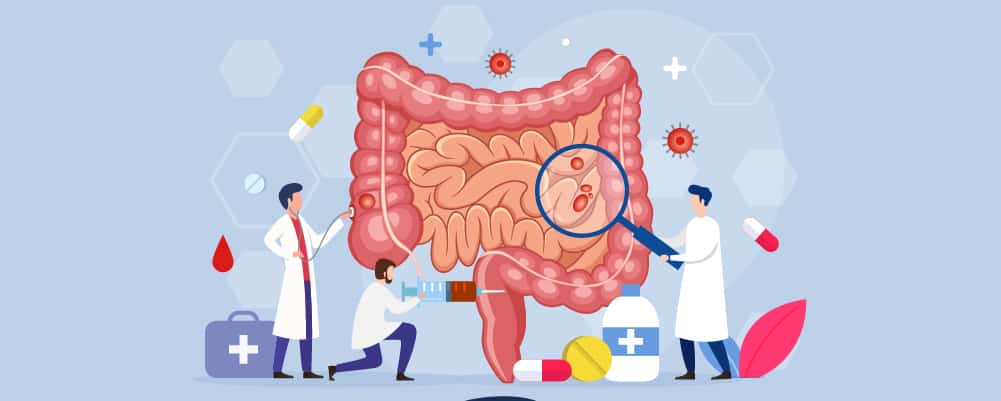
So what is IBS anyway?
Well, frankly, it’s tricky, that’s what it is.
The “S” of course stands for Syndrome, and while there are medical definitions of what a Syndrome is, the short version is that it’s a collection of symptoms for which the cause is hidden, invisible, complex, or just possibly holistic (a combination of several things acting together).
What we know about IBS is that its symptoms are centered in the bowel and gastrointestinal tract, and usually include abdominal pain, alongside either diarrhea, constipation, or – for those really special sufferers, alternating episodes of both.
Naturally then, it’s one of those socially acceptable syndromes that everyone feels totally happy and confident to talk about.
Oh no, wait…
The thing is, with “Syndrome” being code for “all bets are off,” there’s no guaranteed symptom collection and no guaranteed strength of any of the symptoms we know about.
Some people have mild IBS, some people have IBS like a bull in the belly. Some people reliably report other or additional symptoms, other people don’t.
Some people have symptoms more or less constantly, others have crippling bouts and then seem to be fine for long periods.
The unpredictability of even the symptoms of IBS is one of the things that make it so maddening.
So, abdominal pain, constipation, and diarrhea are all key symptoms of IBS – but they’re not individually diagnostic of IBS, meaning you can have diarrhea… which is just diarrhea.
Constipation that’s just constipation. Abdominal pain or cramping that’s just a bad egg salad.
Even the American College of Gastroenterology says the best way to define IBS is by listing what it isn’t.
The list of things it isn’t though is still worth examining, because it can put some people’s minds at ease on some common misconceptions about the condition.
Things We Know IBS Is Not
- It is not psychosomatic or “made up.”
Something real is happening in the bowel or intestinal tract. This is worth knowing if you’ve had the problem dismissed or been told to “get over it.” You’re not going to be able to self-actualize your way out of IBS.
- It is not caused by something “wrong” with the lining of the gut.
There’s no evidence that any malformation, cyst, or cancer causes IBS.
- It also does not appear to lead to any more serious problems with the gut, like Crohn’s disease, ulcerative colitis, or colon cancer.
- It does not put extra strain on your other organ or shorten your life.
Having IBS doesn’t overtax your heart or shorten your lifespan. It’s by no means fun, but it’s not about to give you a cardiac arrest.
- It is not caused by stress.
Stress may be a mitigating factor in the severity of symptoms of IBS, but there’s no evidence that it is a cause of the condition, which means removing all stress won’t miraculously affect a cure for the condition. It may help ease the symptoms.
- It’s not caused by food allergies or intolerances.
At least, it isn’t as far as we know. There’s a complicated note of caution to add here. Celiac disease is not IBS, but it can have symptoms that mimic those of IBS. If you have severe IBS symptoms for over three months, get yourself checked for celiac disease.
- It’s not related to hormone levels.
This is something lots of people have suggested because twice as many women get IBS as men. However, it appears to have nothing to do with the levels or types of hormones in women’s bodies.
What Causes IBS?
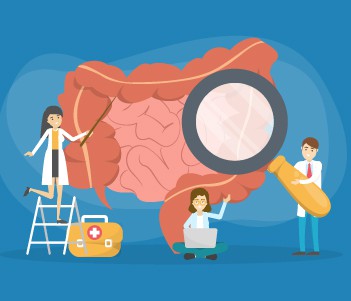 No-one’s yet entirely sure what causes IBS.
No-one’s yet entirely sure what causes IBS.
It seems likely that it’s a combination condition – various causes coming together to create an effect.
As such, these are just some of the ‘usual suspects’ thought likely to either play a role in causing the syndrome or intensifying the symptoms.
- Muscle contractions in the intestine
The intestine is lined with muscles. It works by those muscles contracting regularly to move food through the intestine. There’s a regularity and rhythm to this process.
Stronger-than-usual contractions though can give you gas, bloat you up, and lead to the joy that is diarrhea. On the other hand, weaker-than-usual contractions mean it can take longer for food to get from one end of the intestine to the other.
That in turn can lead to hard, dry, tricky-to-pass stools (constipation). This explains how two of the main diagnostic symptoms of IBS can be produced, but not really why they should be produced.
Anything that can regulate muscle contractions in the intestine though is likely to make living with IBS a lot more manageable.
- Nervous system abnormalities
While it’s not a single-shot explanation, it’s thought that some abnormalities in the nerves in the digestive system may make you feel more pain than those who have ‘normal’ nerves.
That means while the intestine does its regular thing, you may feel it as pain when your abdomen expands with gas or matter.
Separate from that, it’s also speculated that poor coordination of signals between the intestine and the brain can mess with your squeezing rhythm and lead to diarrhea or constipation.
- Severe infection
This is not a cause of IBS, but a severe bout of diarrhea (gastroenteritis), caused by any number of bacteria or viruses, can leave you vulnerable to the symptoms of IBS.
- Too many bacteria
Some scientists think having too many ‘good’ bacteria in your intestine can cause an overreaction and lead to IBS.
- Early life trauma
Ongoing stress is a factor that worsens many conditions, probably including IBS. Research has found though that exposure to traumatic events in childhood worsens the symptoms of eventual IBS.
- Changes in gut microbes
Another indication of ongoing research claims that the flora and fauna of your gut – the bacteria, fungi, and viruses you normally carry around in your intestine with no ill effect – may differ in IBS sufferers and non-sufferers, causing symptoms.
Symptoms of IBS
We’ve already mentioned the main symptoms of IBS but let’s break down the major symptoms that most people diagnosed with IBS have along with a shortlist of additional symptoms reported by some but by no means all sufferers.
Main Symptoms Of IBS
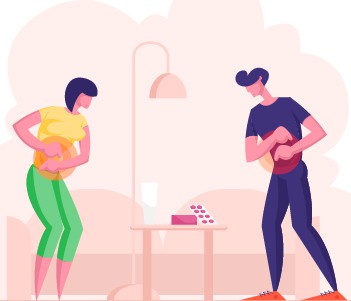
- Abdominal Pain
This is the biggie, the one that triggers most people into seeking the advice of their doctor. Why? Because pain exists to trigger us into action to resolve some situation of endangerment.
People with abdominal pain – especially with no reasonable trigger in recent memory – usually check with their doctor to find the cause and remove it.
- Diarrhea
Losing the ability to necessarily control when you need a bathroom is not only potentially painful in itself, but inconvenient, probably unpleasant, and carries an unfair social stigma.
- Constipation
If lack of bowel control is a hellish inconvenience, constipation – inability or difficulty in getting rid of solid waste – can feel like a punishment from one of the more sadistic gods.
Feeling full, feeling the need to push, but not being able to do so, and/or passing hard, painful stools when you can, can easily have a depressive effect on sufferers, and relocate their focus on what they can’t get done, rather than on what they have to do in their day-to-day lives.
- Alternating Diarrhea And Constipation
For a long-suffering 20% of people with IBS, the world of alternating diarrhea and constipation is a reality. Not only is each symptom grim in itself, but never knowing what sort of digestive day it’s going to be can rob sufferers of confidence and certainty.
- Changes In Bowel Movements
When you first notice you have IBS, this – along with abdominal pain – will probably be your first real indicator.
From a position of ‘normality,’ suddenly having extra hard stools or alternatively, staggeringly loose ones can be both inconvenient, potentially embarrassing, depressing, and a wild ride of what-fresh-hell-is-this.
It’s also worth mentioning that IBS with diarrhea sometimes produces waste with added mucus. Just in case you weren’t freaked-out enough already.
- Gas And Bloating
Gas in our culture has long been labeled both loutish and funny.
Gas and bloating with IBS though is no laughing matter (unless the sufferer chooses to make it so). Bloating robs you of focus, and even of a sense of yourself. Gas can be inconvenient, painful, socially unaccepted and, (let’s get this out in the open) smelly.
In a recent study, 83% of IBS sufferers polled said they had gas or cramping, while most people asked said bloating was one of the most persistent and irritating symptoms they had.
- Food Intolerance
This is a weird one. As far as we know, no particular food intolerance is a cause of IBS. But 70% of people who have IBS…have at least one food intolerance. Not especially the same food intolerance – that would be too easy.
None of these intolerances are strictly food allergies, either, and the trigger foods don’t especially change the process of digestion. They just pretty much symptomize people.
One thing about this though, we do – sort of – know for sure: foods that produce a lot of gas, like lactose, glucose, and FODMAPs (Oh, we’ll be coming back to FODMAPs, just you wait) are more highly IBS-related than others.
True, this is not much of a fact, but it’s more important than you might otherwise imagine, because it gives us a pathway to progress and symptom-reduction.
- Fatigue And Difficulty Sleeping
When people say IBS “takes it out of you,” they’re not just being funny or tongue-in-cheek. Over half of people with IBS report feeling fatigue. 13% of people surveyed in a recent report acknowledged difficulty sleeping.
And weirdly, the intensity of people’s symptoms predicted the degree of their fatigue, but at the same time, the degree of their difficulty sleeping also predicted more severe gastrointestinal symptoms the following day.
- Anxiety And Depression
A syndrome-like IBS has physical consequences like bloating, diarrhea, and constipation, sure. But living with those consequences, and the unpredictable nature of the condition, can be at least equally painful in terms of mental health.
In a study of 94,000 men and women, people with IBS were over 50% more likely to have an anxiety disorder than people without IBS, and over 70% more likely to have a mood disorder like depression.
Additional Reported Symptoms Of IBS
Some people with IBS report other symptoms, outside this bundle of key identifiers. They can include:
Tingling in the hands or feet
This might seem odd, but there’s a certain logic to it. Nerve damage or abnormality in diabetic patients is commonly known as peripheral neuropathy, and manifests itself as numbness in the hands and feet.
If there’s a similar disruption of the nerves in the intestine, it might help explain the sensations and symptoms most closely connected to IBS.
Backache
The intestine is a long system, and not all of it is located in the front of your body. Some people report backache as a measurable symptom of their IBS.
Urinary Incontinence
We’ve said that women are twice as likely to suffer from IBS as men. That involves a whole raft of other, women-specific symptoms.
Urinary incontinence – sudden bladder leaks, painful urination, excess urination at night, more frequent or more urgent urination – is a symptom that has been linked with IBS in women.
Pelvic Organ Prolapse
Likewise, women with IBS are more likely to experience pelvic organ prolapse (in any of its forms – vaginal, rectal, uterine, and urethral prolapse), presumably as a result of increased intestinal clenching, cramping, or spasming.
Intensified Menstrual Symptoms
Women with IBS frequently have heavier and more painful periods than women without IBS. Perversely, it’s also been found that women’s IBS symptoms can often intensify at various phases of their menstrual cycles.
Painful Sex
Pain during penetrative sex has been widely reported by women with IBS.
Deeper penetration causes more pain, but it has also been reported that women with IBS find it harder to relax into arousal and lubrication (we can’t imagine why!), and so also might experience more pain than women without IBS in similar situations.
Is IBS Life-Long?

Oh, you wanted more?
Well, the logic is pretty straightforward. We have yet to get a competent handle on what exactly causes IBS.
It has some core symptoms that may be associated with IBS, or which may be symptoms of another, similar condition, like Celiac Disease, Colitis, or even Colon Cancer.
IBS doesn’t show up on any X-ray of the intestine – it’s not down to specific damage patterns in the intestine.
Until we find either a commonality that links every case of IBS together, or a holistic approach that can deal with a multiplicity of usually individual symptoms, intensities, and flare-up frequencies, we cannot ‘cure’ IBS.
And in the absence of a cure, the condition is likely to remain a permanent factor in people’s lives once they have a diagnosis of IBS.
How Do You Get An IBS Diagnosis?
Most of the symptoms of IBS can also be symptoms of other things, from food poisoning to Celiac Disease. So what’s the procedure for getting an IBS diagnosis, and a pathway to dealing with the condition?
The diagnosis of IBS, lacking concrete ‘cause and effect’ criteria, makes use of something called the ‘Rome Criteria.’ These criteria are subject to upgrades and changes as better knowledge is added to the model of what we know or understand about IBS.
At the time of writing, we are on Rome IV.
The Rome IV diagnostic criteria runs like this:
Recurrent abdominal pain, on average, at least 1 day/week in the last 3 months, associated with two or more of the following criteria:
- Related to defecation
- Associated with a change in frequency of stool
- Associated with a change in form (appearance) of stool.
The criteria need to be met for the last 3 months, with symptom onset at least 6 months before diagnosis.
Meeting that criteria means you need two things.
- You need to go to your doctor, and
- Ideally, you need at least 6 months of bathroom data. 3 months, minimum.
Collecting data on your toilet usage and abdominal pain is hardly fun, but as with most things these days, there are a whole host of phone apps you can use to track the nature of your bowel movements, your food intake, your sleep patterns, and your stress levels.
Having that data to hand will probably help your doctor assess your likelihood of having IBS, but don’t miss out the step of going to your doctor. In a world of information and apps, it’s all too easy to self-diagnose.
Don’t do that – only change your life and habits if and when your doctor advises you to.
Trying The Elimination Diet
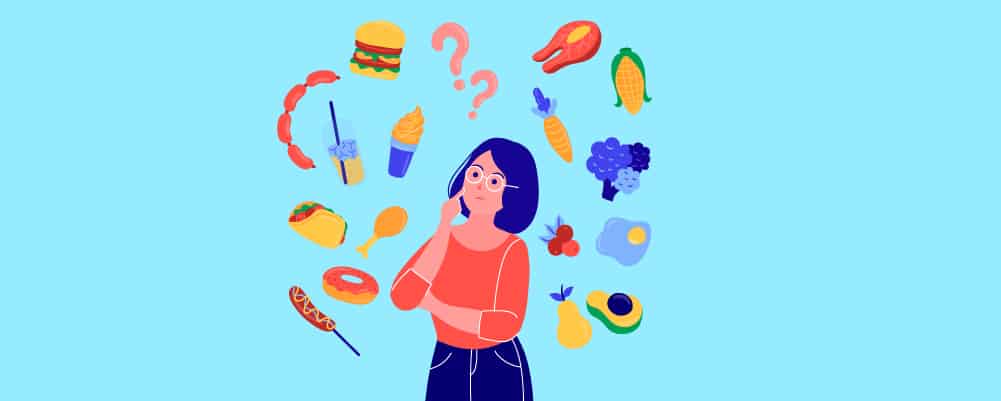
OK, so you have IBS. Welcome to the gastrointestinal elite, the 13%. What the heck do you do now?
If we’ve learned anything at all about IBS by now, it’s that it’s not a “one size fits all” kind of condition. It’s much more tailored specifically to you. You may have specific food-based triggers for specific symptoms.
Giving you your best, least intrusive life with IBS may well depend on mapping out what those food-based triggers are, so you can minimize their influence over you in the future. Welcome to the world of the Elimination Diet.
What Is The Elimination Diet?
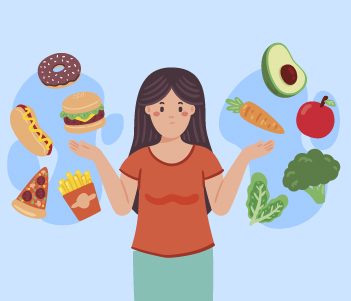 The Elimination Diet is actually less a strict diet, more a kind of flirtation with aversion therapy.
The Elimination Diet is actually less a strict diet, more a kind of flirtation with aversion therapy.
ou can use it in two ways.
Firstly, and more commonly as an initial stage, you can use it to narrow your focus on foods that you can eat with little to no effect on your IBS, and foods which you can’t.
How do you go about doing that?
As ever, first, consult your doctor. Above all, before you start an Elimination Diet, consult them for a diagnosis or a ruling out of Celiac Disease.
Why? Because Celiac Disease changes everything, and you’re aiming to get a good, scientific basis for your actions and your life.
Assuming you don’t have Celiac Disease, the basic principle of an Elimination Diet is…well… elimination. You eliminate particular ingredients from your diet and note any change in your symptoms.
Then, importantly, you reintroduce the eliminated foods and ingredients into your diet and note any change that corresponds to the reintroduction too.
When we say “note any change,” we mean it. Start keeping a food/IBS symptom diary.
That way, when you eliminate the food, you’ll be able to correlate any change in symptoms that accompany the elimination and see which eliminations if any give you a beneficial correlation in your IBS.
What are you eliminating?
Ultimately, anything you like while you still have uncontrolled IBS symptoms. Many people start with a list of “usual suspects,” and work through them methodically.
NB: don’t eliminate more than one food or ingredient at a time in this sort of elimination diet. If you do that, you won’t have a clear correlation between an individual elimination and any IBS symptom changes.
Some of the most frequent “usual suspects” include:
- Dairy products
- Gluten-containing foods (wheat, rye, barley)
- Corn
- Soy
Start with these and work from there. Be aware, it’s not as easy as you might initially think to remove ingredients from your diet.
You’d be amazed – not to say baffled – at some of the products that contain dairy, gluten, corn, or soy in some form or other, including milk powders, corn syrup, and soy protein.
You’re going to need to read ingredient lists, consult online resources on hidden contents, and shop diligently to stand the best chance of getting valid data.
How long are we talking about?
Typically, look to eliminate a food or ingredient for between 2-8 weeks at a time. That will allow your intestine to get used to not processing that particular ingredient, and let you be sure of the correlation between any given elimination and the IBS consequences.
When you reintroduce the ingredient – and really, don’t just eliminate it for good during an elimination diet – take it slowly and gently so as not to jump-start any IBS reactions and swamp yourself in a flood of symptoms.
And lather, rinse, repeat until you have a reasonable list of ingredients and their IBS impacts. That will allow you to make sensible dietary choices going forward to minimize the symptoms of your IBS, and let you get on as much as possible with your life.
The second way to use an Elimination Diet is as part of a FODMAP Diet.
We told you we’d be coming back to FODMAPs.
Try The FODMAP Diet
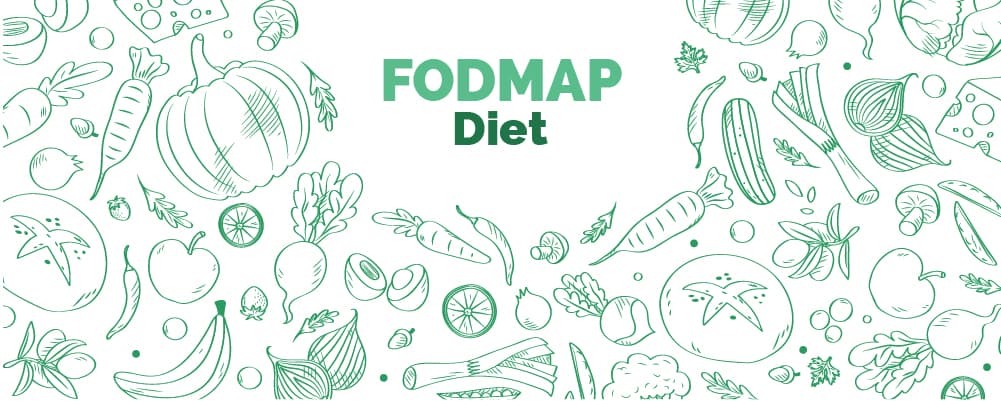
What Is The FODMAP Diet?
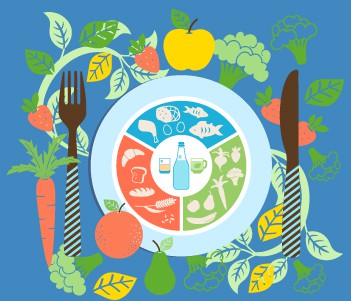 OK, hold your horses.
OK, hold your horses.
Before we find out what the FODMAP Diet is…what the heck is a FODMAP?
We’re glad you asked. FODMAPs are Fermentable Oligosaccharides, Disaccharides, Monosaccharides, and Polyols.
Yeah. Catchy, right? That’s why we call them FODMAPs.
But seriously, what are they?
If you want to get technical, they’re short-chain carbohydrates. The reason we’re talking about them is that some people have difficulty absorbing FODMAPS, which can lead to IBS symptoms.
Anything you can’t absorb or digest might have a distinct impact on ‘digestive transit’ through the intestine, so they’re worth investigating and even eliminating to see if that action makes a difference to your symptoms.
Here’s the thing. While we’re not entirely sure what causes IBS, research shows that a diet that significantly reduces FODMAP consumption… also reduces IBS symptoms. So, do FODMAPs cause IBS?
Probably not. Or probably not on their own.
But they are at least A Thing that can be reduced or removed from the equation, eliminated as you would do in any other Elimination Diet, and which research indicates can reduce or remove IBS symptoms. So, they’re seriously worth considering.
We know what you’re thinking. Great, short-chain carbs. Great, eliminate or reduce them. But what the hell actually ARE they? Right?
What Can You Eat On A FODMAP Diet?
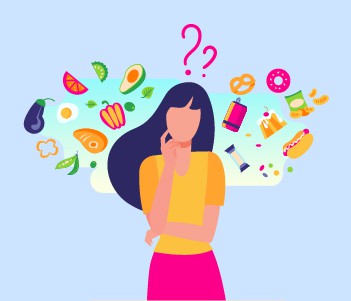 If you’ve read this far, you won’t expect anything related to IBS to be straightforward.
If you’ve read this far, you won’t expect anything related to IBS to be straightforward.
Congratulations, you’re learning.
Many FODMAPs are entirely resistant to absorption, and so pass through your system from the stomach to the far end of your intestine unchanged.
These can actually be useful, as they then work as a kind of dietary fiber, blooming ‘good’ gut bacteria in the lower intestine.
But.
Some FODMAPs are only recognized as fiber by some people’s systems. And when they’re not recognized as fiber, some of the things they do can be troublesome. For a start, the F in FODMAP stands for “Fermentable.”
If you’re fermenting inside when you shouldn’t be fermenting, or your system doesn’t recognize the benefits of fermenting, then what you have is gas. Lots and lots of gas, causing abdominal pain. Sound familiar?
Also, a characteristic of FODMAPs is that they’re osmotic. Which if you don’t speak science means they pull water towards them from elsewhere. Excess water in the lower intestine. Such as you find in diarrhea, for instance.
Starting to get the picture? Nix the FODMAPs and you could well be on the way to a less IBS-revolving life.
So what are they?
An exhaustive list would be too convoluted to be useful here, but let’s take a look at a handful of the most common FODMAPs in your cupboards.
- Fructose
Fructose is a simple sugar found in many fruits and vegetables. It’s also the basis of most modern table sugar, and most of the sugars added to products under the label ‘sugar.’
- Lactose
Lactose is technically a carbohydrate but is often thought of as ‘milk sugar’ – because it’s found in dairy products.
- Fructans
Fructans are chains of fructose molecules, found in lots of foods, from agave, asparagus, garlic, and onions, to most of the breadmaking grains like wheat, spelt, rye and barley.
- Galactans
Sound like they should belong in a comic-book, actually a polysaccharide found in legumes. Bye-bye baked beans, chickpeas, etc. Also – a sneaky one – galactans are often used as an extract to thicken commercial sauces.
- Polyols
Sounding like they’ve escaped from geometry class, these are actually sugar alcohols like xylitol, sorbitol, maltitol, and mannitol. Found naturally in some fruits and vegetables, they’ll be more familiar to most people as artificial, low-calorie sweeteners.
If you’ve read all this and thought “Well, that sounds easy to avoid”…you may have read it wrong. How about a handy chart to give some more specific FODMAP no-no’s?
High-FODMAP Foods To Cut – By Category
| High-FODMAP Foods To Avoid |
| Fruits |
| Apples |
| Pears |
| Peaches |
| Watermelon |
| Apricots |
| Nectarines |
| Plums |
| Cherries |
| Blackberries |
| Mangoes |
| Prunes |
Some holiday favorites – apple pie, cherry pie, peach cobbler, etc – go the way of the dinosaurs on a low-FODMAP diet. Canned fruit and fruit pie fillings are also verboten.
| High-FODMAP Foods To Avoid |
| Vegetables |
| Onions |
| Garlic |
| Cauliflower |
| Broccoli |
| Asparagus |
| Sweetcorn |
| Mushrooms |
| Celery |
| Beets |
| Cabbage |
| Brussels Sprouts |
| Leeks |
| Artichokes |
| Snow Peas |
Lots of the cruciferous vegetables that help give your blood the iron it needs are sacrificed here, along with most French and Italian cooking (onions and garlic!), and some fairly crucial elements of a healthy vegetarian diet.
| High-FODMAP Foods To Avoid |
| Legumes and Nuts |
| Baked Beans |
| Kidney Beans |
| Chickpeas (yes, including hummus) |
| Lentils (yes, including dal) |
| Soybeans |
| Pistachios |
| Cashews |
Lots of middle eastern dishes are sacrificed to the low-FODMAP diet here, along with a proportion of Mexican bean-based dishes.
| High-FODMAP Foods To Avoid |
| Wheat And Rye Derivatives |
| Bread. Most versions of it you’ll find easily available |
| Most non-specialty breakfast cereals |
| Pasta |
| Pizza |
| Crackers |
| Most savory pastries |
| Most patisserie and cakes (though cake-flour uses a lower-gluten flour than regular wheat flour) |
FODMAP Diet, forbid us our daily bread. Also, having already taken garlic and onions out of their cupboards, pity the Italian American – no pizza, no pasta. Still think the FODMAP Diet is easy?
| High-FODMAP Foods To Avoid |
| Dairy |
| Milk – all of it that has had inside knowledge of a cow – full fat, half fat, 2% |
| Cream – half and half, whipping cream, heavy cream. Also dairy creamers |
| Soft cheeses, including cottage cheese |
| Yogurt |
| Ice cream and gelato |
| Custard, whether sweet or savory |
| Pudding |
All the creamiest of life’s pleasures, including the natural alternatives to the cakes we banned earlier, are gone here. Nobody tell the Cheesecake Factory…
| High-FODMAP Foods To Avoid |
| Sweeteners |
| Sugar – most of it will be fructose, a key FODMAP |
| High fructose corn syrup – beware, this is an ingredient in lots of sweet products |
| Honey – a natural sugar-alternative, but still a FODMAP |
| Agave nectar – see honey |
| All the -tols, used as low-calorie sugar substitutes: sorbitol, xylitol, maltitol, and mannitol |
| Isomalt – often found in sugar-free products like gum, mints, and cough syrups as a way of making things taste palatable without adding actual sugar |
In addition to all this, a low-FODMAP diet means cutting out more or less all alcohol – the fermentation, plus the sugars, are probably not your friends.
Energy drinks are a no-no, for their high caffeine content and potential irritant properties. And even the likes of coconut water are best avoided whenever possible.
The point we’re belaboring here is that while a low-FODMAP diet has some solid research behind it in combating the effect of some IBS symptoms, it’s not easy, and is on the drastic side, given the extent to which many of the ingredients it prohibits are woven into, and hidden within, many easy-to-prepare food options in any American supermarket.
That said, where are the upbeat charts? The positive charts? The ‘Eat These Low-FODMAP Foods And Ease Your IBS Symptoms’ charts?
Funny you should ask…
| Low-FODMAP Foods To Reduce IBS Symptoms |
| Fruits |
| Oranges |
| Grapes |
| Honeydew Melon |
| Grapefruit |
| Cantaloupe |
| Lemons |
| Bananas |
| Blueberries |
| Kiwi Fruit |
| Strawberries |
| Limes |
Lots of citrus fruit is still available on a low-FODMAP diet – which will surprise some people given the sharp, acid nature of the fruit.
| Low-FODMAP Foods To Reduce IBS Symptoms |
| Vegetables |
| Carrots |
| Bell Peppers |
| Green Beans |
| Cucumber |
| Lettuce |
| Tomatoes |
| Potatoes |
| Bean Sprouts |
| Bok Choy |
| Bamboo Shoots |
| Bean Sprouts |
| Ginger |
| Zucchini |
| Eggplant |
| Olives |
| Chives |
| Parsnips |
| Turnips |
The low-FODMAP diet allows you a good range of vegetables, including several that make for varied Chinese cuisine, along with some (potatoes, parsnips, turnips) that can add bulk to a protein for a satisfying meal, and tomatoes, peppers, olives, and eggplant for a little Mediterranean fare.
| Low-FODMAP Foods To Reduce IBS Symptoms |
| Dairy and Dairy-Alternatives |
| Hard, ripened, or matured cheeses, including: |
| Cheddar, Brie, Camembert, and Feta |
| Non-Dairy milks, including, but not limited to: |
| Almond Milk |
| Rice Milk |
| Coconut Milk |
| Oat Milk |
| Low-FODMAP Foods To Reduce IBS Symptoms |
| Proteins |
| Beef |
| Pork |
| Chicken |
| Fish |
| Eggs |
| Tofu |
| Tempeh |
While there’s plenty of protein to get your teeth into on the low-FODMAP diet, be careful when it comes to add-ons like breadcrumbs, sauces, gravies, and the like, which might undo your good work with their FODMAP-fullness.
| Low-FODMAP Foods To Reduce IBS Symptoms |
| Grains and Grain-Products |
| Rice |
| Rice bran |
| Oats |
| Oat Bran |
| Quinoa |
| Sourdough spelt breads |
| Corn flour |
| Gluten-free breads and pastas |
Oh yeah – you can get gluten-free breads and pastas now. The thing is, somewhat ironically, gluten itself? Nnnnnot a FODMAP.
But, the theory on the FODMAP Diet is that companies that go out of their way to ensure their products are gluten-free have probably thought about their FODMAP-footprint too, and made it as small as possible.
| Low-FODMAP Foods To Reduce IBS Symptoms |
| Nuts And Seeds |
| Almonds |
| Macadamia |
| Peanuts |
| Walnuts |
| Pine Nuts |
| Pumpkin seeds |
While there’s a good variety of nuts and seeds available on the FODMAP Diet, a word of caution.
While some nuts are fine in moderation, if you decide to eat all the walnuts or almonds, and we really wish we were making this up, you can turn a low-FODMAP ingredient into a problematic-FODMAP ingredient.
So these are a “Yes, but in moderation” FODMAP-friendly inclusion in the FODMAP Diet
In terms of drinks, the FODMAP Diet is less friendly. It allows tea and coffee, though caffeine has some history as an intestine-irritant, so go decaf if you can. And if you need your morning Joe to be anything other than black, use non-dairy creamers.
Likewise, you’re allowed fruit juice, but only if it’s fresh – like canned fruit, fruit juice concentrate can be FODMAP-high. Water, as far as we know, is FODMAP-low. Plastics-high, but that’s a whole other thing for a whole other day.
You can see that while the FODMAP Diet is not by any means an easy transition, especially if you make it suddenly, you’re not going to starve if you follow it.
You will, at first, need to get out your magnifying glass in the store and check the ingredients of the foods you buy. You may end up paying more for low-FODMAP alternatives, like quinoa and sourdough spelt bread.
But available research says the low-FODMAP diet can dramatically reduce your IBS symptoms. Be sure to consult your doctor before you start a FODMAP Diet, and only try it if you have a diagnosis of IBS.
There’s some evidence that if you don’t suffer from IBS, the FODMAP Diet could actually do more harm than good. Check in with your doctor along the way to make sure you’re getting the right nutrients from your food.
And we can’t stress this too highly – we’ve said things are ‘not allowed’ on the low-FODMAP diet. That’s putting things too strongly.
Remember before we blasted you with all the things not to eat on the FODMAP Diet, we said this was the second use to which you could put an Elimination Diet.
That’s what it is. The FODMAP Diet is not a regime for life. It’s an Elimination Diet where you take the FODMAPs out or right down and replace them with low-FODMAP alternatives, and then map the results of your IBS symptoms.
Again, you’re looking at between 2-8 weeks to eliminate or limit the FODMAPs in your system.
After that, you’re going to slowly try and re-introduce higher-FODMAP ingredients, and map the changes in your IBS symptoms. The FODMAP Diet is not a life sentence.
It’s an experiment in finding out what FODMAPs you can tolerate at what levels, and personalizing your response to your IBS.
How To Ease The Symptoms Without Drugs
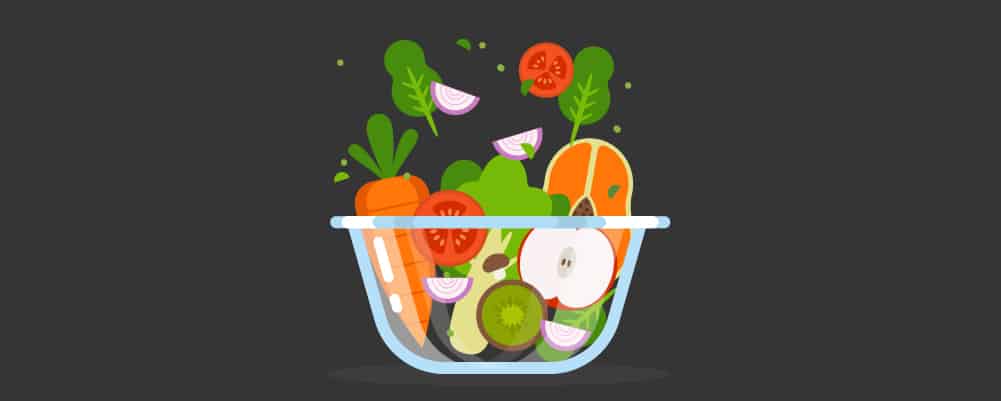
Everything we’ve explained so far has been based in a slightly crude but drug-free form of science.
The removal and reintroduction of ingredients into your diet, and the mapping of consequences as shown by changes in your IBS symptoms, is a diet-based approach to reducing the symptoms of IBS and making them more manageable.
In addition though, there are some more general methods you can use to make your experience of lots of life better, as well as hopefully to calm the worst excesses of your IBS symptoms.
Diet – Additional
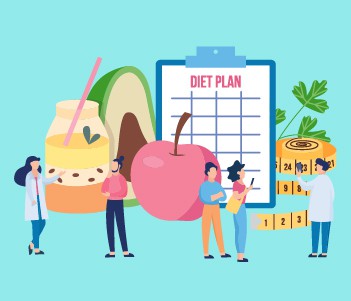 While no-one wants to make you into a martyr to forbidden pleasures – because after all, pleasure plays its part in a happy life too – there are some things it’s worth tweaking on the graphic equalizer of your life.
While no-one wants to make you into a martyr to forbidden pleasures – because after all, pleasure plays its part in a happy life too – there are some things it’s worth tweaking on the graphic equalizer of your life.
Stimulants like alcohol, caffeine, chocolate, and nicotine, while they can give you an extra buzz, can also lead to mood crashes and may irritate the lining of the intestine.
Greasy or high-fat foods can increase the strength of your intestinal contractions (and lead to the sort of twitchy clenching that IBS sufferers will be familiar with), so try to limit the likes of:
- Fries
- Fried chicken
- Pizza
- Sausage
- Rich, creamy sauces
- Potato or corn chips
Limiting – rather than necessarily eliminating – these high fat-content foods will give your intestine a fighting chance.
Spicy foods may cause people with IBS more trouble, because of a greater presence of nerve fibers that react to a substance within chili peppers.
While this makes a kind of instinctive sense given the longstanding ‘challenge’ of spicy foods to some people’s digestion, the research on this is still fairly new, so it’s worth taking with a pinch of salt. Just possibly not a pinch of pepper.
Sodas might seem like a great idea on a hot day, but ohhhh, the bubbles.
The bubbles can easily contribute to the amount of gas in your intestine, and as we’ve learned, gas leads to bloating, bloating leads to abdominal pain and potential distention of the belly, and from there to IBS symptoms is precisely no distance at all.
Sure, have a can or a glass once in a while if you feel the craving. But cut down as much as you can to keep your gas content (and either your sugar content or your artificial sweetener content) under control.
Size matters. Sometimes, gastrointestinal distress and IBS isn’t just a matter of what you eat, but how much of it you eat at any one time.
We’ve seen already how in the case of some nuts, low-FODMAP foods can become a high-FODMAP problem if you eat them to excess. Excess is also a more fundamental problem. Give your intestine too much to process at any one time, and it will struggle.
If it struggles, the regular rhythm that pushes food and waste through the system will get upset. Be kind to your intestine – give it a literal break between portions.
Exercise
 Exercise used to be a fundamental part of the life of human beings.
Exercise used to be a fundamental part of the life of human beings.
In older days, we ate to give us the energy to do the things we needed to do – from primeval survival to hard physical work.
As our society generally heads further and further into sedentary work, it’s important to give the body something hard and physical to do on a regular basis, otherwise lots of physical processes slow down and semi-atrophy, from fat-burning to muscle-toning, to digestive peristalsis.
Sure, it will still work – but it will work slow, and sluggish, and inefficiently. The more exercise you do, the more toned your system is overall to work efficiently – and the better shape your intestine will be in.
No, no-one knows precisely what causes IBS, and its trigger-maps look to be individual, rather than general. But by doing some exercise, you tone up your whole system, and at least potentially, help your intestine do its job.
Reduce Stress If Possible
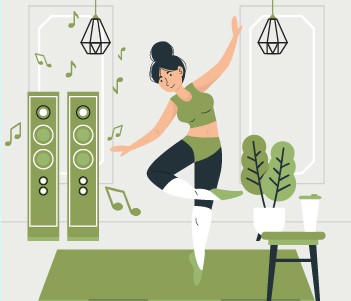 On a similar principle, while it’s not a direct cause of IBS, systemic stress has been shown to intensify the severity of the symptoms.
On a similar principle, while it’s not a direct cause of IBS, systemic stress has been shown to intensify the severity of the symptoms.
And again, there’s a fundamental underlying logic to that.
If your system is under stress, it’s frequently preparing to jump into a fight or flight mode. That tension is present in your body, and it affects your whole life.
There’s no reason not to think it also primes your intestine for spasming when faced with high-FODMAP foods that create a lot of gas, or foods that move too fast or too slow through the system.
Wherever and whenever you can, reduce stress in your day. That stress reduction can take whatever form works for you – half an hour’s quiet reading, talk with friends, a mindless action movie, a round of golf, a bubble bath, a meditation session, etc. Whatever helps pull the stress out of your system, do it.
Check The Current Medications You Are Taking
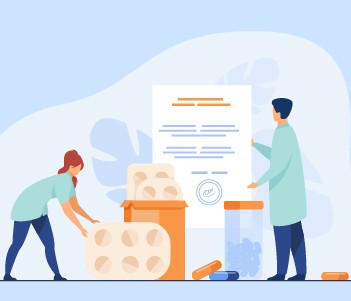 Take a look through your medicine cabinet.
Take a look through your medicine cabinet.
Some of the medications you take regularly might be irritating your intestine.
While there’s little by way of strict advice on this for IBS – a consequence of the exact causes of the syndrome being opaque – those who suffer from Inflammatory Bowel Disease are generally warned to be aware of potential side effects from four classes of medication.
Non-Steroidal Anti-Inflammatory Drugs (NSAIDS)
NSAIDs reduce pain and inflammation by helping suppress the creation of compounds known as prostaglandins. Prostaglandins contribute to the production of inflammation. Therefore, fewer prostaglandins, less inflammation, everyone’s happy.
Except prostaglandins also help maintain the health of the lining of the stomach, known as the mucosa. The mucosa, as the name suggests, is a mucus-factory. Mucus in the stomach protects the stomach walls from the action of normal digestive enzymes.
Less mucus means less protection means the most ironic inflammation known to mankind – anti-inflammatory drugs causing inflammation of the stomach.
While this all takes place higher in the gastrointestinal process than most of the issues that contribute to IBS, it’s worth noting as a contribution to overall gut health.
Antacids
Some antacids contain aluminum hydroxide. Used long-term, aluminum hydroxide can lead to constipation, a key IBS symptom. Check your antacid’s active ingredients if you need to use it long-term.
Anticholinergic Drugs
Used to treat depression, sleep disorders, and incontinence, these include the likes of Benadryl and tricyclic antidepressants. They can result in a delay to food leaving the stomach, setting up a glitch in the rhythm of digestion.
H2 Receptor Antagonists
H2 receptor antagonists are chiefly used to fight Gastroesophageal Reflux Disease. Most of the concern when using them is that, like the anticholinergic drugs, they can delay food emptying out of the stomach.
On the other hand, some H2 receptor antagonists appear to speed up the stomach-emptying process. Research is ongoing as to their overall effect, but either way or both, they may cause a kink in the rhythm of digestion.
Taking A Probiotic Supplement – Yes Or No?
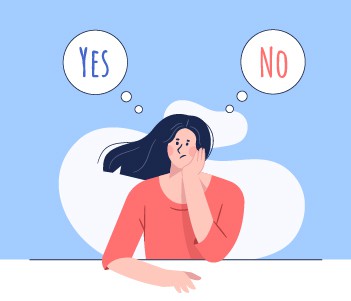 Probiotic supplements are a much-talked-about subject in the world of IBS.
Probiotic supplements are a much-talked-about subject in the world of IBS.
There’s a logic to them, in that many of the symptoms of IBS may have a root in what’s called the gut microbiome.
They also… may not.
Or, as seems likely given the enigmatic nature of the syndrome, they may for some people, and not for others.
Whether probiotic supplements work or not depends on a number of factors.
Firstly, do you have IBS? Let’s say you do.
Secondly, do you have enough ‘good bacteria’ in your intestine to at least match the number of ‘bad bacteria’? You’re going to want to consult your doctor on that one. We’ll wait.
Thirdly, will your chosen probiotic, containing lots of good bacteria, survive as far as the intestine?
This is a serious concern – your digestive system has evolved specifically to strip nutrients out of food and absorb them – anything you swallow with the intention that it gets to your gut microbiome, 95% of which is located in the intestine, has to survive an acidic environment and not be absorbed along the way.
Check for claims that the good bacteria make it to the gut alive. If they don’t, you just drank an overpriced milkshake for nothing but the taste.
And fourthly, will they work to re-balance your biome?
The evidence is… well, the evidence is like the evidence of most things when it comes to IBS. Sketchy, but interesting. Partial, and seemingly untroubled by any notions of consistency.
Either it works for some people, or the IBS symptoms of some people are positively affected by the idea that it works.
There’s some contrary evidence that in some people, adding a probiotic can overbalance the bacterial balance and cause an overreaction in the intestine – in effect, worsening the situation.
There are questions over the correct quantity of good bacteria that need to be in each dosage, and whether that dosage can be standardized across IBS sufferers, or whether, like most things connected to the syndrome, it has to be individualized to the sufferer.
If you have IBS, it probably can’t hurt to take a high-quality probiotic – unless you discover that it does. Note the effects in your symptom diary if so, and tell your doctor.
But more research needs to be done in terms of the precise effects of probiotics before they earn a universal place in the spectrum of IBS symptom care.
Figure Out What Works For You And What Doesn’t
 IBS is enigmatic and individual from start to finish.
IBS is enigmatic and individual from start to finish.
With a range of core symptoms, potential links to nervous conditions, no physical wounds or growths to indicate causes for symptoms, a potential childhood trauma aspect, and a sex bias in the syndrome but no notable hormone effect, IBS is a condition that, if it has universally applicable rules, is still keeping them hidden from researchers.
The important thing is to make sure you can live your best life with the condition.
That means probably using an elimination diet or a FODMAP Diet, under medical supervision, to work out what ingredients are triggers to your IBS symptoms, and limiting or eliminating them from your diet in the future.
Your list of triggers will probably be different from everyone else’s, though it will undoubtedly have overlaps. When it comes to IBS, you need to do you so you can get on with your life.
Summary
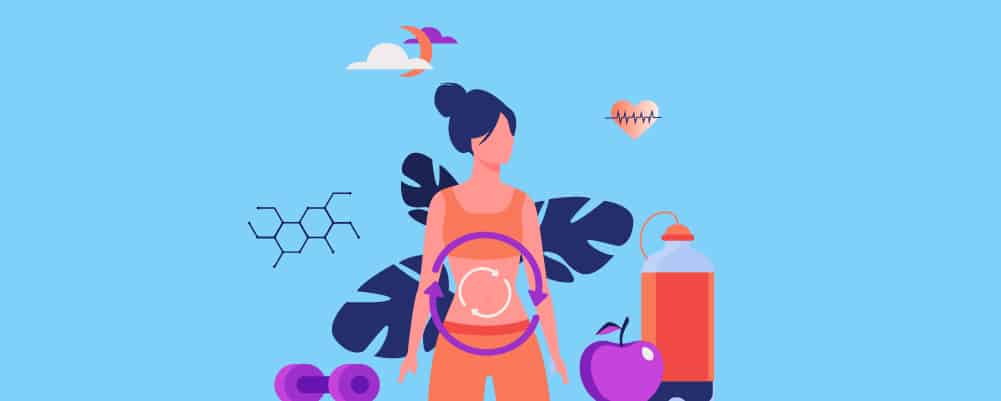
IBS is a syndrome that affects millions of people in the US alone, and far more than that worldwide.
Because of its range of symptoms, diversity of seeming triggers, and lack of any physical condition as an outright universal cause, it is one of the most difficult conditions to tackle with a ‘cure’ in mind.
That said, there are ways to address the condition when it makes itself known in your life. Keeping a food and symptoms diary is one of the best ways to get your initial diagnosis, from which all progress will stem.
A process of removing individual ingredients from your diet, or swathes of high-FODMAP ingredients, and then gradually reintroducing them, while noting the effects on your symptoms, will give you a roadmap to follow through the roadmap of Eating While Having IBS.
While the process may seem crude, research shows it can significantly improve the lives of people with IBS. Above all, while your symptoms and your roadmap may be individual, it’s important that you understand you’re not alone.
Support groups and fellow sufferer groups are all over social media.
Do what you need to do to get your IBS roadmap, but travel the road in company.
Leave a Reply